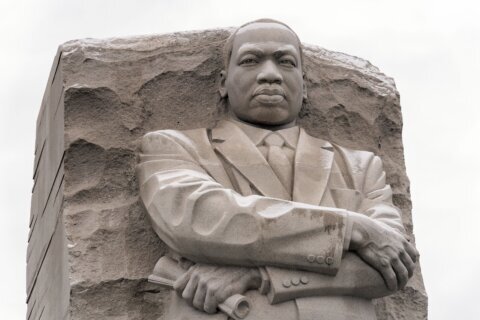‘Tis the time of year when financial advisors begin seeking the perfect client gift.
The right gift can elevate a relationship, but it’s a decision that balances cost with the ability to deliver and meet client expectations. It can subconsciously demonstrate the advisor’s money acumen in a unique way while affirming that the advisor is in touch with their client’s motivations.
The selection equation also requires that the advisor is mindful of their regulatory body’s guidelines for gift giving. The Financial Industry Regulatory Authority, or FINRA, limits a gift’s value to $100 for broker-dealer representatives. Advisory firms do not have a specific gifting limit but are required to have a gift-giving policy that ensures a gift does not create a conflict of interest, show favoritism or condition any future action on the client’s part. All advisors need to document their practices and maintain a log of gifts given for regulatory review.
Advisors tend to give gifts that fall in one of four categories:
— Luxury gifts.
— Experience gifts.
— Philanthropic gifts.
— Food and family gifts.
[SUBSCRIBE: Get the weekly U.S. News newsletter for financial advisors. ]
Luxury Gifts
Many advisors like to give impressive gifts, especially if they work with clients who like brand names and high quality. They may choose wine or spirits, technology (such as noise-canceling headphones and voice-controlled devices), and golf or tennis equipment. Gift baskets are an especially popular gift for financial advisors, as exquisite packaging reinforces the luxury experience. Baskets can also be tailored to a client’s favorite activities. For example, an avid gardener might enjoy a gift basket of heritage plant seeds and a custom trowel.
Experience Gifts
Sporting and concert tickets are the most common gifts in this category. When an advisor gives a client a pair of tickets but attends the event with them, it is no longer considered a gift but an entertainment expense. Even if the advisor attends the event with the client, it is important that the value or cost of the entertainment is not considered excessive. An advisor can also combine luxury and experience — for example, by gifting cooking lessons with a notable master chef leading the instruction.
Philanthropic Gifts
An advisor may choose to give a lump sum of money on their clients’ behalf to a charitable organization, especially if the charity’s work intertwines with the firm’s mission statement. For instance, if a firm works with special needs clients, giving to a local charity that provides services to special needs children who have aged out of governmental programs can be well respected by clients.
Some advisors go the extra mile to connect clients with charitable gifts. Zale Dowlen, an advisor in Nashville, Tennessee, helps his clients create gift baskets for foster children. Working with local agencies to determine the children’s wish lists, he pairs them with his clients, helps source the contents and personally joins them to deliver the baskets to the agencies. His clients love the ability to dive deeper than a typical Angel Tree contribution.
“Benevolence and charity matter so much more when it’s more than just a check. This gives others an opportunity to personally know those that they might never have connected with on a personal level,” Dowlen says. “What will surprise you is that often, they have something to offer you as well.”
[READ: Even Advisors Get the Blues: Managing Stress as a Financial Advisor.]
Food and Family Gifts
When clients have family, they appreciate gifts that enhance their personal time together.
Luke Russell, an advisor at Upstream Investment Partners in Midland, Michigan, says his firm offers clients a free pie during the holidays. It partners with a local grocer to offer clients a choice of several kinds of pie. Clients enjoyed the opportunity to choose their favorite.
“We have found it to be a great touch to personally thank them for their business,” Russell says.
Gifting key ingredients is another way to add value to holiday meal preparations. For example, pre-shelled pecans are needed for many traditional holiday dishes, either as a topping or as an ingredient, but are expensive to purchase at the grocery store. Advisors can support their local growers by purchasing attractively packaged nuts in 1-pound packages. The main cook in the family will always remember you favorably.
Pets are often considered family, especially with single, divorced or widowed clients. A beautifully handcrafted collar, for example, will often be perceived by the client as a luxury gift, and they will be touched by your thoughtfulness.
Respecting Holiday Diversity
The holiday season means something different to everyone. Some will celebrate Christmas, Hanukkah or Kwanzaa, and others may find meaning in less-well-known festivities, depending on their heritage and background. Being mindful of others’ perspectives makes an important impression on how clients view their advisors.
“Happy holidays” is a neutral greeting that encompasses multiple holidays. But when you offer celebratory words in the client’s preferred tradition, it adds some thoughtful nuance to gift giving.
You can demonstrate attention to these details while keeping an overall neutral theme. A holiday wrapping in the distinctive colors of each client’s celebration is a subtle nod. Being aware of what not to give can be equally important.
Another option is to reframe the gift toward the new year, which may stand out more in your clients’ eyes.
[The Best Podcasts for Financial Advisors]
To Logo or Not to Logo
While it is not a faux pas to give a branded gift, this is the time to think twice before doing so. Clients know that items featuring logos are bought in bulk, and it does not feel as special as a personally chosen gift. However, larger firms can often negotiate larger discounts on luxury items, such as premium cutlery or high-end branded sporting goods, bringing the price down within compliance guidelines. Be sure to personally deliver the gift or include a handwritten note to help the client see the care that was taken in choosing the gift for them.
Should an Advisor Accept a Gift?
Some clients like to give gifts to show appreciation to their advisors. However, receiving gifts from a client can easily run afoul of compliance and regulatory concerns. Some firms will not allow their advisors to accept gifts of any value, while others restrict gifts to a value of $25. Most follow FINRA’s guidelines of $100 or less, and advisory firms are expected to craft their own gifting policy.
While it is uncomfortable to decline a client gift, most quickly understand when the advisor explains that they are prohibited by their firm’s or regulatory guidelines.
Gifts that exceed normal value can, on occasion, be approved by exception, so an advisor should notify their compliance officer for direction. Preapproval and consistent application of exceptions by the firm is key for it to pass regulatory muster. Under no circumstances should a firm allow an advisor to accept a client gift that is excessive or creates a conflict or expectation.
Remembering the Purpose of a Gift
The largest tangible manifestation of the experience between an advisor and their client is often reflected in holiday gifts. A well-chosen gift not only reinforces the established relationship, but builds upon it by reflecting the advisor’s understanding of what is most meaningful to the client.
More from U.S. News
7 Best Movies for Financial Advisors
What to Know Before Becoming a Financial Advisor
10 Things Your Financial Advisor Should Not Tell You
Holiday Gift Giving for Financial Advisors and Clients originally appeared on usnews.com







